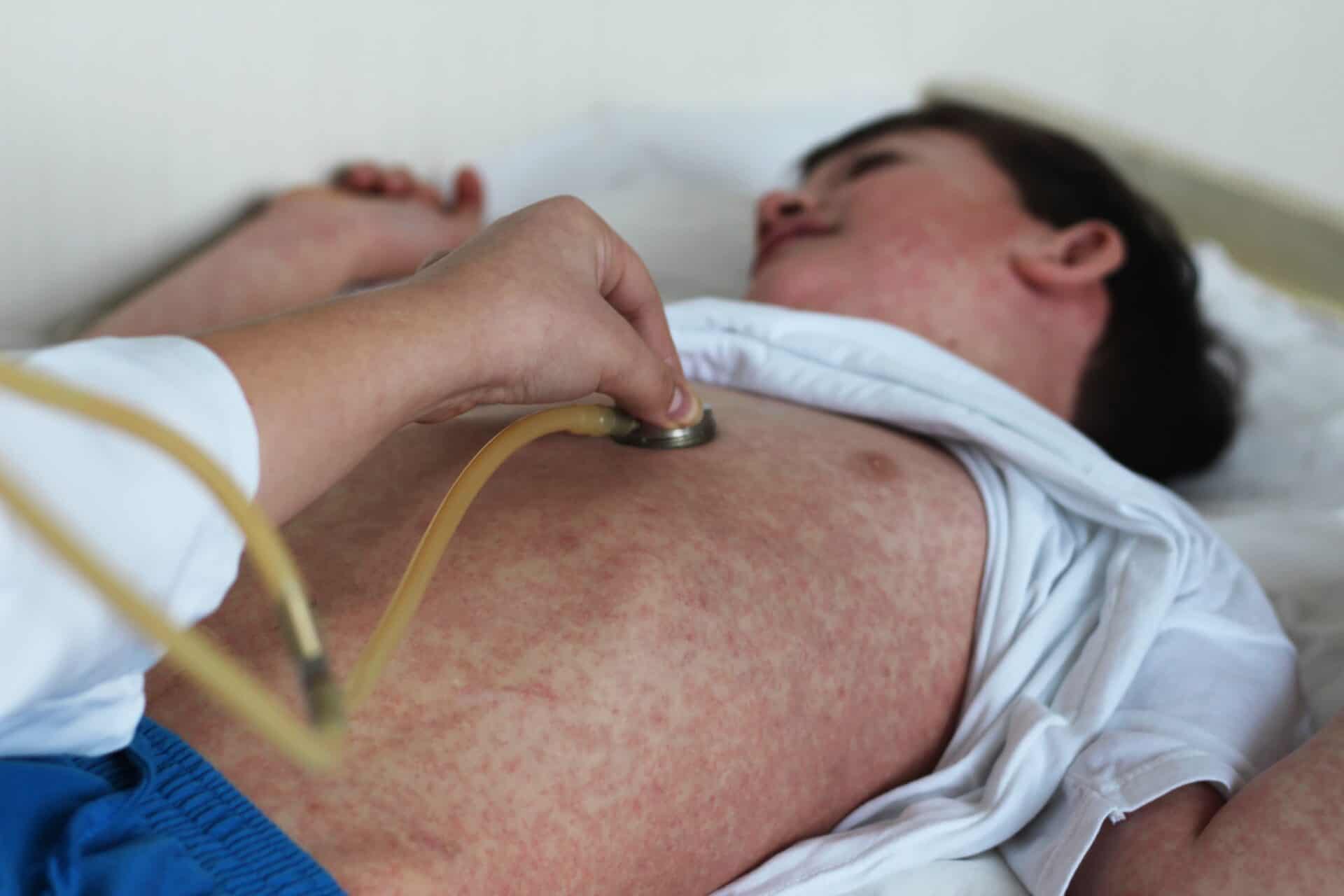On 19th January the UK Health Security Agency (UKHSA) advised that an outbreak of measles in the West Midlands had reached the threshold for a national incident to be declared. The majority of those affected are under the age of 10.
Measles is highly contagious but two doses of the MMR vaccine are 96% effective against measles. In the UK, there was an overall reduction in measles cases following introduction of the measles vaccine in 1968. The most significant drop occurring after the MMR vaccine was introduced in 1988. Since that time coverage levels of more than 90% have been achieved and notifications of measles until 2021 had been at very low levels. Older adults who acquired measles (prior to the vaccine programme) are likely to be immune from infection.
The World Health Organisation advise that a population coverage of 95% or higher provides herd immunity to protect the most vulnerable individuals from serious infection. Current MMR coverage rates are lower than this across England with a range from 73.1% (London) to 90.9% (Cumbria and North East).
The reasons for reduced levels of vaccine update are complex but include an increasing number of children from mobile international populations (with lower levels of vaccination), access issues for some populations of children (including looked after children), vaccine hesitancy, and vaccine refusal.
It is important to note that measles vaccination has had a significant effect on reducing measles cases and deaths, resulting in a 73% drop in measles deaths worldwide between 2000 and 2018. All deaths from measles in England and Wales since 2000 have been in unvaccinated individuals. The case fatality rate in developed countries is low but other complications such as pneumonia, encephalitis, and blindness can result particularly in immunocompromised or vulnerable children.
Given these risks in 2019 WHO declared vaccine hesitancy to be one of the 10 threats to global public health. The current outbreak and potential future outbreaks are therefore a vaccination programme challenge.
Part of this challenge is overcoming the concerns that some parents may have about the safety and efficacy of the vaccine. Some of this will be done at a national or regional level with targeted information and education as part of the immunisation campaign.
This campaign involves all parents of children aged 6 to 11 being contacted and encouraged to make an appointment to have their missed MMR vaccines.
However, it is also clear that some of these parents may need more time and more information to help them overcome their fears or concerns. This could include reassurance about vaccine safety in general, explanations about any potential adverse effects, countering worries about the safety of multiple vaccines administered simultaneously, countering misinformation garnered elsewhere, discussing the safety of vaccine adjuvants, allaying concerns about autism, explaining the need for vaccinations when the disease is ‘rare’, considering the concept of natural immunity versus vaccination, and also why there is a need for vaccination at a young age.
No one should underestimate the difficulty of overcoming these issues and how time consuming this can be on a case by case basis, especially at a time of ever-increasing pressure on primary care services.
However, a key consideration is that currently more than 3.4 million children under the age of 16 years are either unprotected or not fully protected and at risk of contracting measles.
Measles vaccinations are proven to reduce complications and save lives.
Finally, if a diagnosis of measles is suspected, it is essential to notify your local Health Protection Team (HPT) to confirm the clinical diagnosis as measles is a notifiable disease.
If you’re a practitioner who is inexperienced around measles, or if you would benefit from refreshing your knowledge, you can register to take our Measles – Diagnosis and Management course on iLearn. Covering causes, prevalence and prognosis, how to assess someone with possible measles and different diagnosis, how to manage measles, and options for notification and referral. This course also contributes to 30 minutes of your CPD, find out more here.

